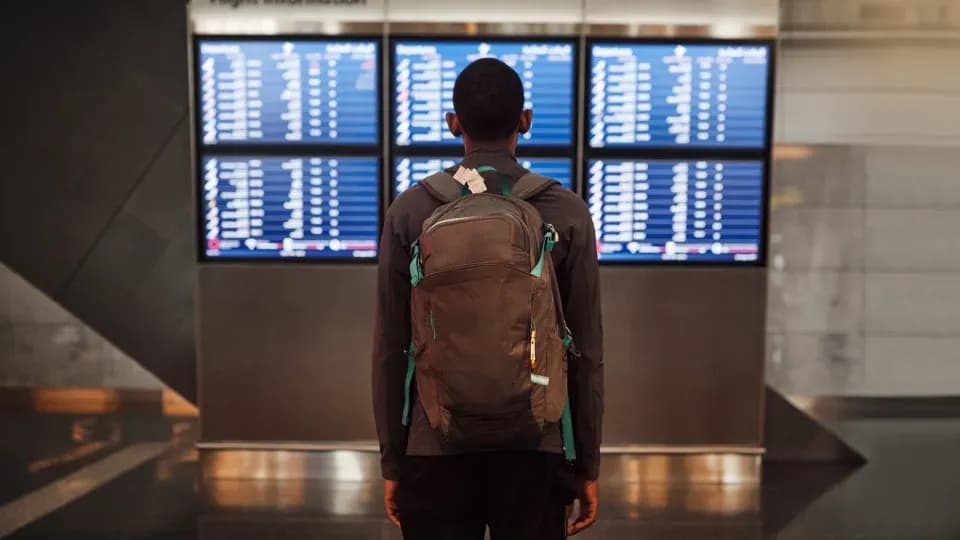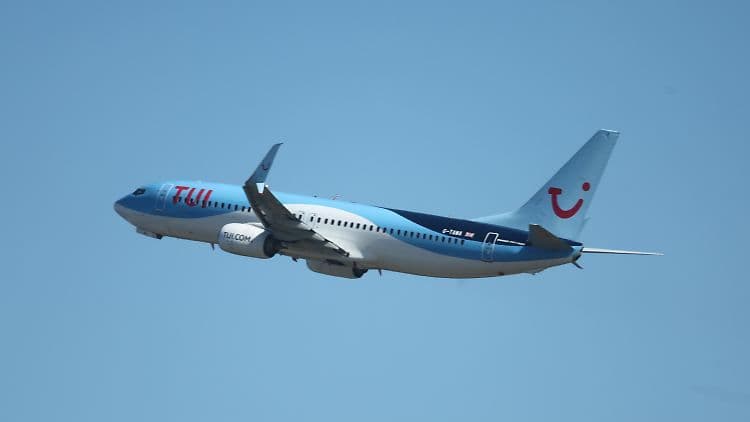Flight Path Cleared: Unpacking the Menzies Truce and Your Enduring Passenger Protections
Unpack the Menzies strike's resolution and why EU passenger rights remain your ultimate safeguard. Learn to navigate disruptions, past or future, with confidence.

The Calm Before the Storm: What Fueled the Menzies Standoff?
The summer travel season often brings with it a mix of excitement and anxiety, and this year was no exception, particularly for those flying through . A significant source of this anxiety stemmed from a brewing labor dispute involving , formerly Groundforce, and the . This wasn't a sudden storm; it had been building for some time, with workers expressing deep dissatisfaction over their working conditions. Their core demands were clear and pressing: an end to base salaries falling below the national minimum wage, calls for better overall remuneration, and the proper payment of night shift hours, among other crucial grievances. In fact, the summer had already seen disruptions, with strikes occurring from July 25 to 28 and again from August 8 to 11. These actions served as stark warnings, and the looming threat of further, more extensive stoppages – scheduled for August 15-18, 22-25, and August 29 to September 1 – cast a long shadow over holiday plans. The air travel landscape was already fragile, with an alarming 37% of passengers departing from in August 2024 experiencing flight disruptions, highlighting just how common these issues have become. The standoff was merely the latest, high-profile example of the underlying tensions in the aviation sector.
Averting Air Chaos: Inside the SIMA-Menzies Resolution
Just as the summer travel season approached another critical juncture, a collective sigh of relief swept through the aviation sector and among travelers alike. The officially withdrew its strike notice against , effectively calling off the series of paralyzing stoppages that had been hanging over . This pivotal development wasn't achieved in a vacuum; it was the result of intense negotiations and a shared commitment to finding common ground. The breakthrough came after a crucial understanding was reached between union committee and administration, facilitated and mediated by the . This intervention from a governmental body underscored the severity of the potential impact on public services and the economy. An official communication, accessed by Lusa, confirmed that following the agreement, associates would not proceed with the planned industrial action. The document explicitly stated that the strike notice was rendered void due to the consensus forged during the discussions. This resolution not only prevented widespread disruption for thousands of passengers but also offered a vital moment of stability for an industry constantly navigating complex operational challenges. It demonstrated that even in the face of deep-seated grievances, dialogue and mediation can pave the way for a peaceful resolution.
Your Unshakable Shield: EU Passenger Rights Beyond the Strike Headlines
While the immediate threat of the strike may have dissipated, it's crucial for air travelers to understand that their fundamental rights remain firmly in place, acting as an unshakable shield regardless of the headlines. A powerful piece of legislation, the air passenger rights regulation, stands as a testament to this protection. It safeguards every passenger holding a ticket issued by an airline, ensuring a baseline of entitlements even when things go awry. , a lawyer specializing in air passenger rights and a representative of in , offers a vital nuance here. He points out that while strikes undeniably complicate travel, the eligibility for compensation often hinges on who controls the industrial action. If the disruption is caused by a strike involving the airline's own employees, directly managed by the carrier, passenger claims for compensation are generally strengthened. However, if the disruption stems from a strike by third-party service providers, like ground handling staff, the path to compensation can become more intricate. This distinction is key, but it doesn't diminish the overarching principle: your rights are there to be exercised. It simply means understanding the specific circumstances of your disruption is paramount. Staying informed and knowing where to turn for guidance is your best defense.
When Plans Go Sideways: Navigating Past Disruptions and Claiming What's Yours
Even with the strike called off, it's a sobering reality that many flights still experienced significant disruptions during the periods of industrial action that did occur. For those passengers whose travel plans were thrown into disarray, understanding how to navigate the aftermath and claim what's rightfully theirs is paramount. The is your guide here. If your flight was cancelled or you were denied boarding, airlines are obligated to offer you re-routing options. You also have the choice to decline this re-routing and request a full refund for your ticket. Beyond that, if you incurred additional expenses as a direct result of the disruption – think unexpected hotel stays or meals – you can seek reimbursement from the airline. Moreover, a significant protection comes in the form of financial compensation: passengers may be entitled to up to 600 euros for delays exceeding three hours upon arrival at their destination, for cancellations without adequate prior notice, and in cases of overbooking. What's more, these claims can be pursued retroactively for up to three years after the flight. As emphasizes, documenting every detail meticulously is crucial. Keep all boarding passes, booking confirmations, and receipts for any incurred expenses. Seeking specialized guidance from passenger rights organizations can also significantly streamline the claiming process, ensuring your rights are indeed respected.
Beyond the Horizon: Ensuring Smoother Journeys in a Dynamic Industry
The strike resolution, while a welcome relief, serves as a powerful reminder of the inherent volatility within the aviation industry. The statistic that 37% of passengers departing from in August 2024 faced disruptions isn't just a number; it's a clear signal that travel hiccups are a common, almost expected, part of modern air journeys. This dynamic environment necessitates that passengers remain vigilant and proactive. While the specifics of compensation eligibility, particularly regarding who controls a strike, can be complex, the core message remains steadfast: provides a robust framework of protection. The key takeaways from this recent episode aren't just about the immediate crisis averted, but about equipping travelers for the long haul. Always remember the importance of meticulous documentation – from flight details to any unexpected costs. And when in doubt, don't hesitate to seek expert guidance. Organizations specializing in passenger rights exist precisely to help navigate these often-confusing waters. As the industry continues to evolve, facing new challenges from labor relations to unforeseen global events, an informed and empowered passenger base is essential. By understanding your rights and knowing how to assert them, you're not just reacting to disruptions; you're actively contributing to smoother, more accountable journeys for everyone.
Related Articles

Beyond the Forecast: ANA's Strategic Safeguard for Hachijojima Journeys

Beyond the Forecast: ANA's Strategic Safeguard for Hachijojima Journeys

Grounded Guardians: The Unseen Costs When Europe's Canadairs Fall Silent

Grounded Guardians: The Unseen Costs When Europe's Canadairs Fall Silent

Beyond the Beach Boom: Decoding TUI's Strategic Surge Amidst Global Headwinds

Beyond the Beach Boom: Decoding TUI's Strategic Surge Amidst Global Headwinds

The $800 Riddle: Unpacking the Global Freeze on Small Package Shipments to the U.S.
